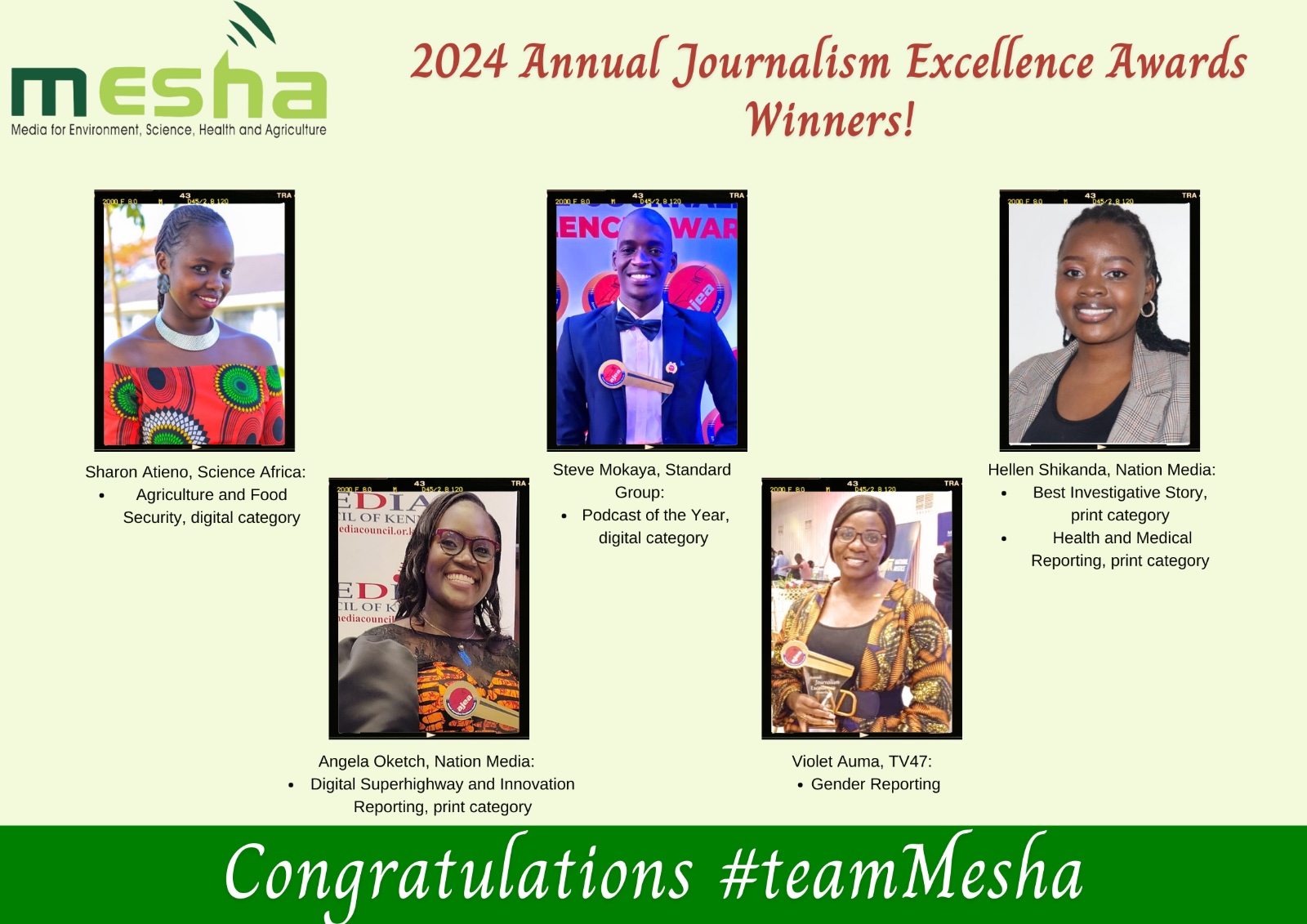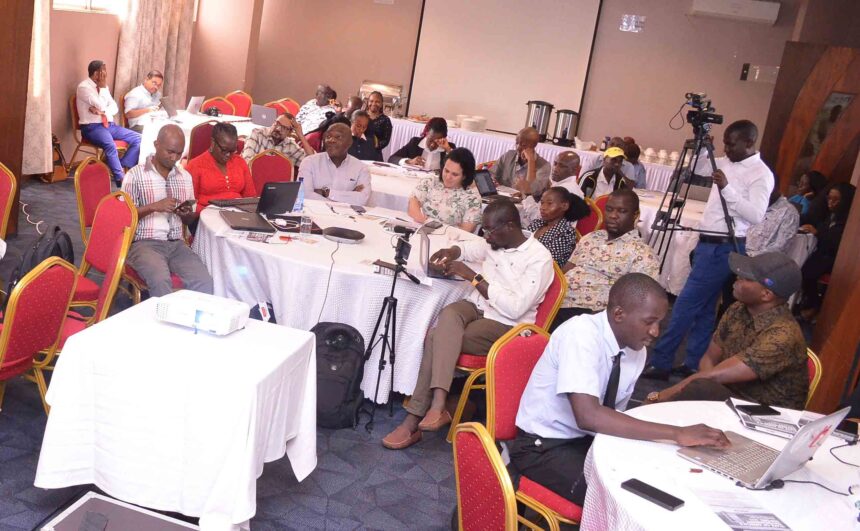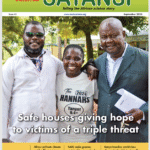By Christine Ochogo I christawine@yahoo.com
Media awards, they say, seek to motivate journalists to excel in their work and grow in the profession. In Kenya, the Annual Journalism Excellence Awards (AJEA) are a continuous yearly recognition and celebration of journalistic excellence and achievement.
Addressing this year’s AJEA on May 3 Victor Bwire, Director, Media Training and Development at the Media Council of Kenya, noted that Kenya’s journalism tops in Africa, only comparable to the industry’s performers in South Africa.
Angela Oketch, who calls herself Nyar Daktari on Facebook, is a multi-AJEA winner and did not miss on the list of those feted this year.
She said that despite writing award-winning stories year after year, an award is the last thing that crosses her mind whenever she writes.
“It is just about telling a good story, adhering to the basics. Going in-depth, doing good research, talking to relevant sources and the rest will follow,” says Ms Oketch while contributing to a discussion on MESHA Members WhatsApp Group recently.
She added that most of the stories she has entered for the competition are usually spotted by her readers, mentors and social media followers.
In the 2024 awards, MESHA members won in six categories. Sharon Atieno won in the digital category of Agriculture and Food Security. Jackson Okata, who joined MESHA recently, was the first runner-up in this category together with Gardy Chaacha of Standard.

Hellen Shikanda of Nation Media Group carried home two awards – Best Print Investigative Story, which was a health story and Best Health and Medical Reporting in the Print category, where Ms Oketch from the same media house was adjudged first runner-up. Ms Oketch, on the other hand, scooped the Digital Superhighway and Innovation Reporting award under the print category. Ms Shikanda was placed second in the Environment and Climate Change category.
Steve Mokaya of Standard Group won the Podcast of the Year, digital category, Ruth Keah of SBS Radio was second runner-up in the same category while Violet Auma of TV47 led in the Gender Reporting category with her story, the Plight of the Intersex People.
Other MESHA-affiliated journalists who shone in the competition include camera guru at Citizen TV, Alfred Cheruiyot, who won in the Development and Public Affairs category; Lina Mwamachi who presented the Radio Production of the Year and Mkamburi Mwawasi in the Gender Reporting print category.
Judie Kaberia, who chaired the panel of judges, commended the incredible talent and commitment displayed by journalists across various media platforms. The judges, she said, noted a significant improvement in the quality of radio production compared to previous years.
Increased participation by community and vernacular media was also encouraging, added Ms Kaberia.
Yet, amidst the applause, the judges noticed several areas for improvement.
“Most of the stories in the radio category lacked sound effects, a crucial component in storytelling,” the judges noted.
Whereas they witnessed commendable progress in digital journalism, there remains a call for further growth to fully harness the potential of digital storytelling. Print journalists, while transitioning to digital platforms, often cling to traditional writing styles, they observed.
Further, Ms Kaberia said, excessive hyperlinks and poor quality videos are some of the common pitfalls the judges observed. It is evident that a concerted effort is needed to ensure that creativity in digital storytelling aligns with the standards of quality expected in the digital media production.

Media trainers and editors will, however, need to put more effort on consistent use of language, spellings and basic writing skills of their in-charges as the judges noted that it was disheartening to deduct points from certain journalists due to language inconsistencies.
While many outstanding broadcast stories showcased exceptional content, they lacked voice-overs or subtitles. Additionally, a concerning surge in grammatical errors was noted. Instances of sentences beginning with lowercase letters, failure to capitalise names of organisations and individuals, and missing or misplaced punctuation marks were prevalent.
The judges acknowledged the diversity and inclusivity of the entries received from across the country, including entries from university students.
Judges further commended the creativity and innovation demonstrated by journalists in breathing freshness into exhausted topics. In the face of subjects losing their allure, journalists reignited interest and kept important discussions alive through their imaginative storytelling
It was also noted that this year, there were very strong entries by freelancers, and this cements their importance in the journalism field.
“You don’t have to belong to a media house to churn out good journalism,” said the judges in their report.









